
Note: "Witness the Arctic" regularly features the research and related programs of ARCUS member institutions. This article spotlights the Arctic Centre at University of Lapland, located in Rovaniemi, Finland.
The Arctic Centre at the University of Lapland is built exclusively for Arctic research and outreach. Founded in 1989, it is located in the Arktikum House situated in Rovaniemi, Finland. The Arctic Centre hosts an international staff of about 80 whose work includes social sciences, anthropology, natural sciences and law studies, which in combination support a holistic understanding of developments and life in the Arctic.
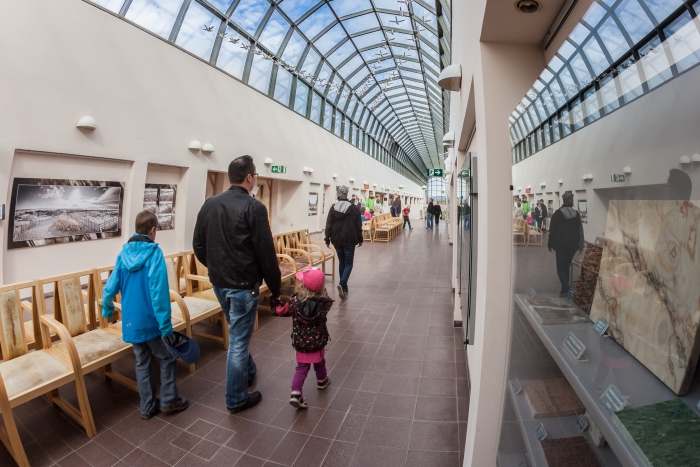
The Arctic Centre has three multidisciplinary research groups: global change, sustainable development, and the Northern Institute for environmental and minority law. The research concentrates on the interaction between people and environment. The Centre has expertise in a multitude of areas, including stakeholder participation, sustainability and social impacts, traditional knowledge, land use and natural resources, local and indigenous peoples, economy and ecology, mitigation, and resilience. Additionally, science communication programs at the Arktikum Science Centre improve general understanding of the Arctic by giving visitors a "tour" through the Arctic regions. The Centre also hosts a number of Arctic events annually, ranging from local discussions and Arctic handicraft markets to major international Arctic conferences.
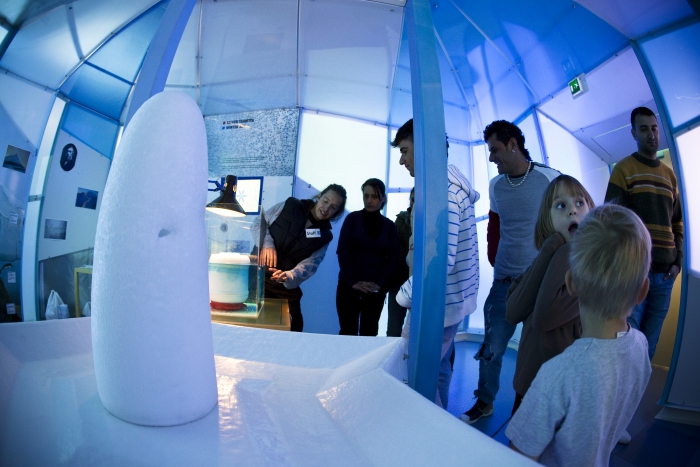
The Arctic Centre enjoys a strong international reputation and is Finland's leading center of excellence for the Arctic. The expertise at the Arctic Centre is also utilized in the Arctic Council and the Barents Euro-Arctic Council activities. The Arktikum House where the institute is located was built following an international architecture competition. It hosts two major exhibitions: the Arctic Centre's Arktikum Science Centre and the city of Rovaniemi's Regional Museum of Lapland. It has become one of the most popular tourist attractions in the region.
The University of Lapland
The Arctic Centre is the research unit of the University of Lapland. The University has faculties of social sciences, law, education, and art and design. The University concentrates on service design, northern well-being, and the changing nature of work as well as sustainable development, law, and justice.
Upcoming Event - In the Spirit of the Rovaniemi Process Conference, 24-26 November 2015
This conference is the second in a series of biennial international Arctic conferences under the headline "In the Spirit of the Rovaniemi Process" organized by the Arctic Centre together with the City of Rovaniemi and the Arctic Society of Finland. The conferences highlight the importance and contemporary legacies of the so-called Rovaniemi Process from the early 1990´s that started the international Arctic cooperation, resulted in the Arctic Environmental Protection Strategy, and contributed to the establishment of the Arctic Council. With the theme "Local and Global Arctic," this year's conference will address the interaction of the global, regional, and local levels in the Arctic. Updated information is available here.
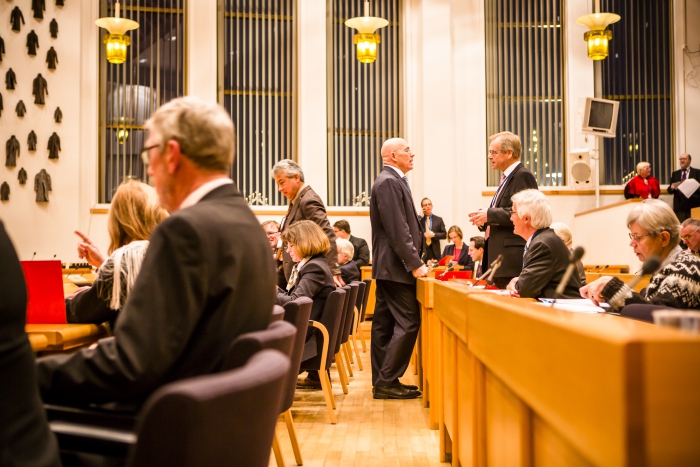
Examples of Current Research Activities
Resilience in Social-Ecological Systems of Northwest Eurasia (RISES)
A research project entitled Resilience in Social-Ecological Systems of Northern Eurasia RISES, led by research professor Bruce Forbes and funded by the Academy of Finland, will reconstruct the environmental histories of integrated social-ecological systems in Fennoscandia and Yamal, West Siberia that have been characterized by both climate change and the constant adaptation of people and their reindeer herds through the late Holocene.
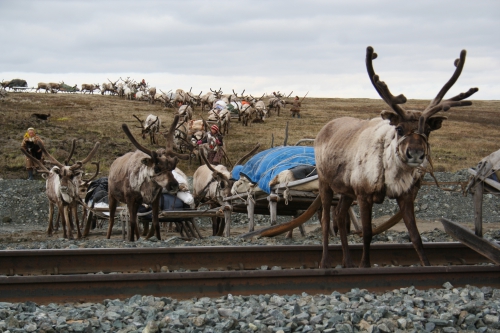
The project will link indigenous Sámi and Nenets oral histories with archaeology, paleoecology, and modern ecological and climate studies for a holistic explanation of stable states. The aim is to produce a state-of-the-art assessment on the relative roles of, and feedbacks between, humans, animals, and climate in the structure, function, and resilience of past and contemporary systems.
Human Security as a Promotional Tool for Societal Security in the Arctic (HuSArctic)
The main objective of the Human Security as a Promotional Tool for Societal Security in the Arctic (HuSArctic) research project led by senior researcher Dr. Kamrul Hossain from the Northern Institute of Minority and Environmental Law is to address human challenges of the Arctic population from a different angle, namely from the human security perspective as it is conceptualized today.
The project will focus on the Barents region as that area is facing numerous human activities such as mining and mineral activities in Finnish and Swedish Lapland, offshore oil and gas activities in Northern Norway, and both onshore and offshore oil and gas activities in Russia's Barents region. In the Arctic perspective this will bring added value to the ongoing discussions and dialogues concerning the vulnerability of, as well as adaptation to, the challenges facing Arctic inhabitants, more particularly its indigenous and local communities. Knowledge developed from this project would bring benefit both to the policy level decision-makers as well as local people, communities, and stakeholders.
Oral History of Empires by Elders in the Arctic (Orhelia)
This anthropology research project, Oral History of Empires by Elders in the Arctic (Orhelia), is subtitled "A comparative history of the relations between states / Empires and their subjects in their northernmost peripheries." Reports from the field trips are available at the Arctic Anthropology Blog.
The Orhelia project develops a comparative history of relations between remote people and states in the eyes of Arctic indigenous elders, by using the method of life history analysis and oral history fieldwork combined with anthropological participant observation. Doing so, the project will also contribute to preserve incorporeal cultural heritage among Uralic speaking northern minorities of Europe and study the transmission of historical heritage between different generations. The project is funded by the Research Council for Society and Culture at the Academy of Finland and it is led by research professor Florian Stammler.
Science Popularization and Social Impact
Barents Media Guide
The Barents Mediasphere project has published a Barents Media Guide, which serves journalists from inside and outside the Barents region as well as the general public with interest in the theme.
The map-based web guide includes basic information about the media in the Barents Region. It also gives practical information about the region and how to act there, which is essential for the work of journalists. On the website there are also video stories addressing journalistic work on the Barents region and cooperative networks of the regional media.
The Kolarctic ENPI-funded Barents Mediasphere project ran from 2012-2014. It aimed at enhancing cross-border information. Led by the Arctic Centre at the University of Lapland, other partners included BarentsObserver and TV Murman from Murmansk. The Media Guide now compiles the information and experiences produced by the project.
Arktikum Science Centre: Standing Short
The story of the trees in the Arctic is told in Standing Short, a new temporary exhibition at the Arctic Centre at the University of Lapland. The public is welcome to enjoy the exhibit, learn wooden facts, see delightful illustrations, hug a tree, and enjoy some fun learning silly facts such as what a 'spruce's ass' is and why the mountain ash has been considered a sacred tree. The public is also invited to visit the permanent Changing Arctic exhibition.
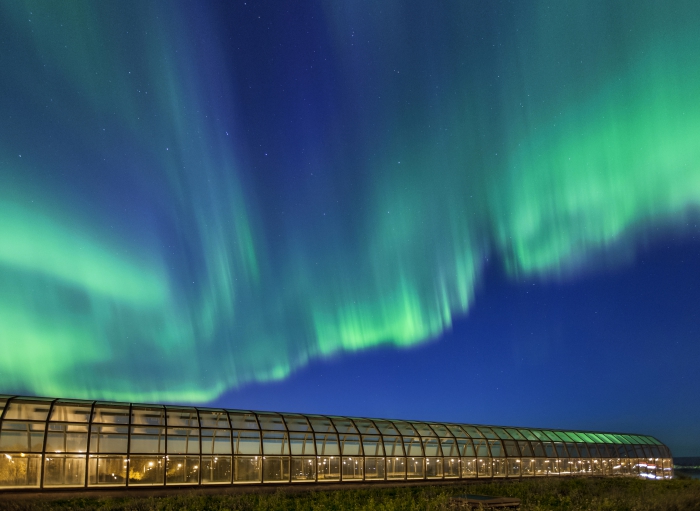
Interested?
For more information about the Arctic Centre, visit the website. You are also warmly welcome to come to Rovaniemi and visit the Arktikum House, as about 80,000 other people are already doing every year. Note: Santa Claus lives nearby, only about 10 minutes by car.
For questions, contact Markku Heikkilä, Head of Science Communications, (markku.heikkila [at] ulapland.fi) or phone: + 358 40 4844300. A new Director (unknown as of this publication) of the Arctic Centre will start in early 2016.
